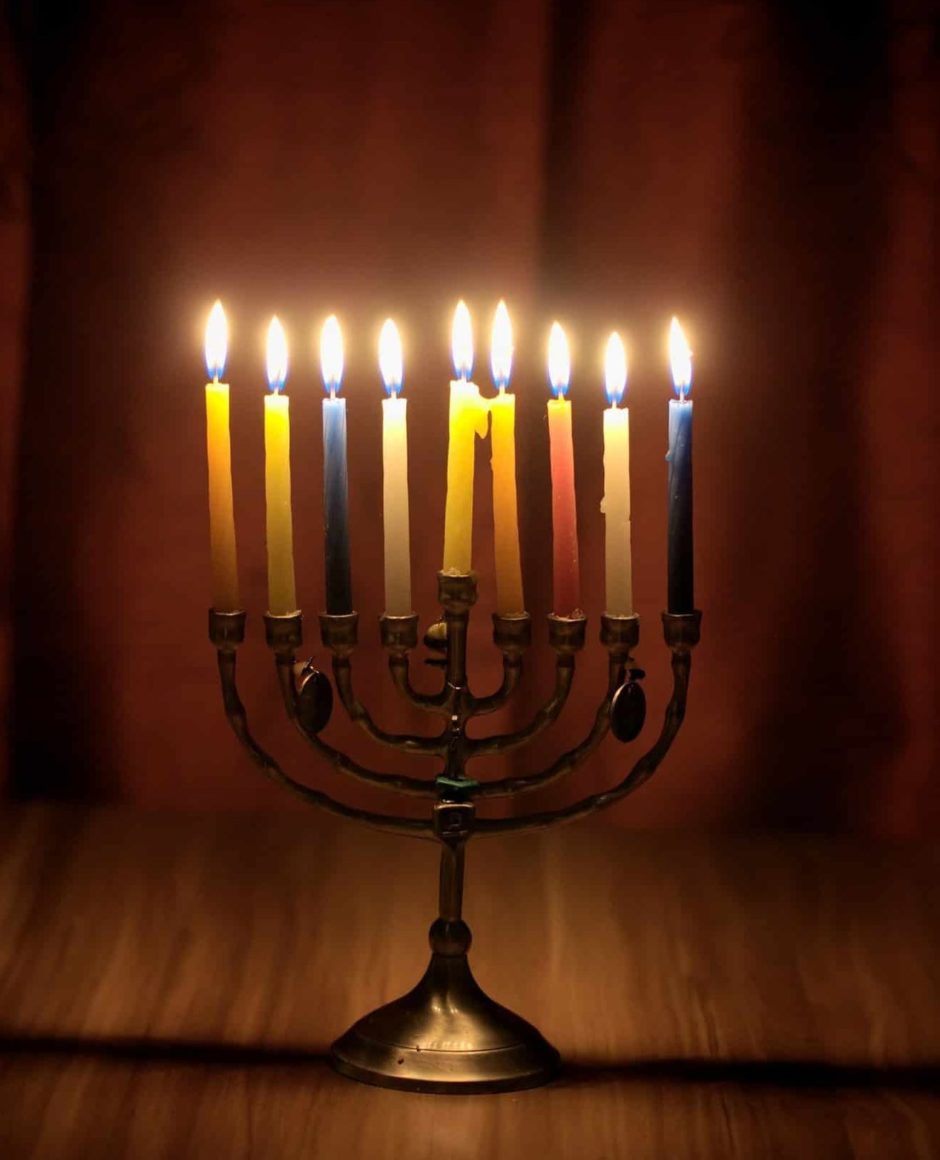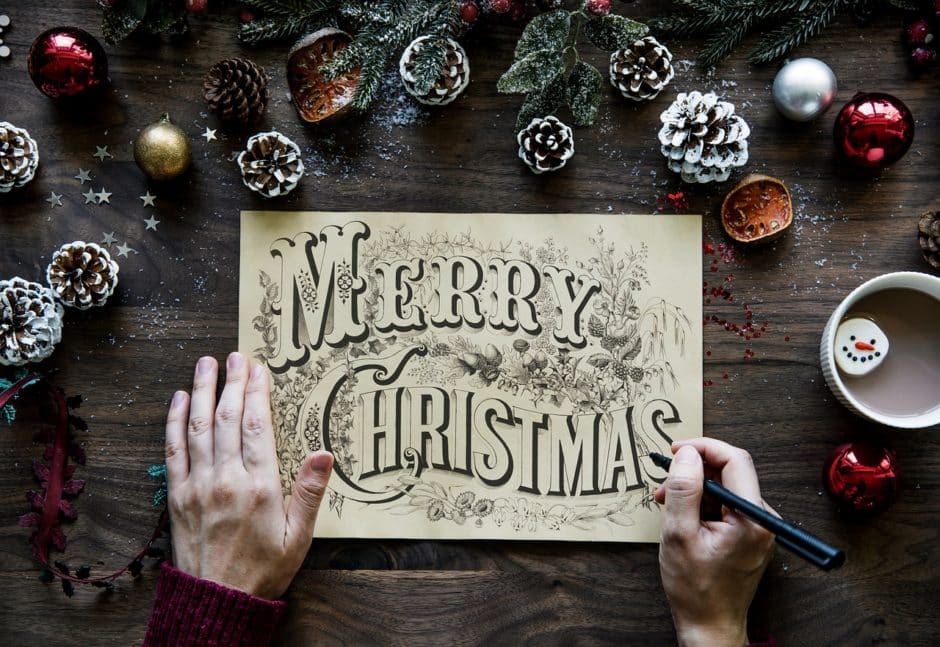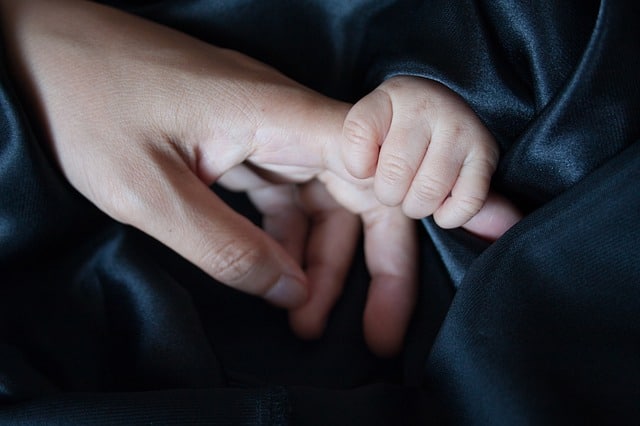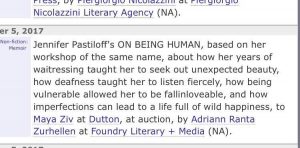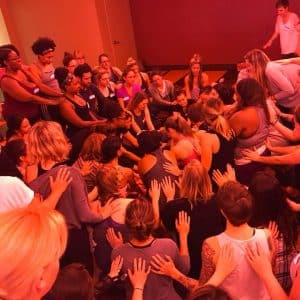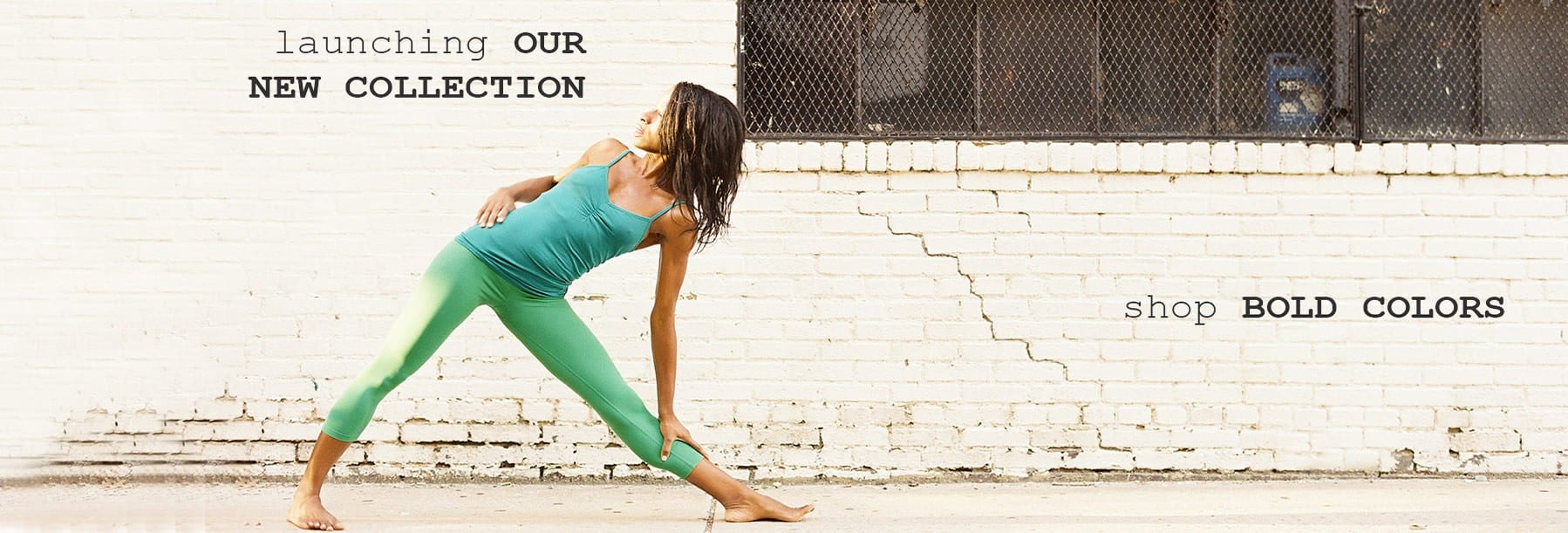By Sharon G. Forman
I’ve inherited more than a few traits from my mom: dark brown hair and eyes; a love of orange sherbet mixed with vanilla ice cream; and a dangerous driving habit of hesitating before merging into highway traffic. One December evening decades back when I was eight-years-old, my mom faltered for a second too long before flooring the gas in our blue Buick station wagon to enter an acceleration lane on an expressway from Norfolk to Virginia Beach. It was back in the early 1970’s, and I doubt that any of us kids in the back seat had strapped ourselves into seat belts. An approaching car bumped into us, as we made our way to the Hebrew Academy for the school’s Hanukkah celebration. Just a fender bender, the main worry from the minor accident was that it delayed us from my 3rd grade Hanukkah performance in which I was set to debut in a prominent role as one of Judah Maccabee’s brave brothers. Truth be told, I don’t exactly remember which of those five Maccabee sons I was portraying. The name Eleazer seems to ring a bell in the hazy crevices of my memory, but I can’t really be sure. I definitely was not the starring brother, Judah, the boldest military hero. In his famous Hasmonean family, there was also a “John” and a “Jonathan,” which struck me as curious even as a young child. What parents give their kids practically the same name (other than the boxer George Foreman who is famous for his indoor grilling devices as well as gracing all of his five sons with the name George)?
Back to Hanukkah, though, which concerns itself more with frying than grilling. I clasped the cardboard handle on my aluminum-covered shield emblazoned with a magic marker-inscribed Star of David and my flimsy tin foil sword, as a policeman with a sheriff’s hat guided us out of traffic and helped us on our way. I had no fear of the friendly Virginia sheriff, although my mom, a transplanted midwesterner and ardent civil rights supporter, seemed suspicious of Southern law enforcement. She wondered out loud about how these same people who were so kind to us might have treated members of the black community in Virginia just a few years back when they were trying to vote or attend public schools in neighborhoods as lily white as the Commonwealth’s dogwood blossoms. My mom did not possess the most trusting view of human impulses, but was grateful for the roadside assistance under a darkening sky.
Our bumper may have been dented, but all of my armor was intact, as we arrived at the campus of my Jewish day school, and I rushed into the cafeteria which was doubling as an auditorium. I remember dashing on stage to tangle with some Greek-Syrian enemies, singing Hanukkah songs, and at one point donning a construction paper candle around my head like a crown, as a handful of my peers and I became the embodiment of a living Hanukkah menorah. The teachers handed out gifts of rainbow-colored Hanukkah candles, with a preponderance of murky colored green ones that I tried to trade with my siblings, as well as plastic yellow and pink dreidels, spinning tops, that had been hollowed out to contain candy. I’m sure my older sister used her sharp fingernails to burrow through the clear tape placed around the dreidel. Now a scientist, back then she was our fixer of broken toys and errant math homework, as well as the most competent person to help us outmaneuver plastic barriers to candy.
Like my mom’s attitude toward the Virginia police, Hanukkah was a bit confusing with its competing tales of valorous guerilla warfare mashed up with songs touting prophetic messages of spiritual peace. These were hefty contradictions for a small child to sort out, and even my all-wise sister, Julie, did not attempt to unravel this puzzle. Hanukkah could be about the fried potatoes, the music, the games with spinning tops and all of the mathematical probability equations their twists engendered.
People always seem to assume that Jewish children love Hanukkah because of the profusion of presents. Some kids receive a gift each night for a week plus a day. In our family, Hanukkah gifts tended toward the practical- socks, a few silver dollars of gelt, chocolate coins, paperback books, and vinyl records or eight-track tapes of Israeli nightclub music or Irish Rover folk songs. The gifts were less than dazzling. At least for me and my siblings, Hanukkah was all about the fire. You picked your candles, your color scheme (avoiding the ugly green ones, of course), and then loaded up your personalized menorah. Then, you stared in wonder as the tapers burned down just inches from your eyes, mesmerized by the variations in melting times. After the candles transformed into nuggets of wax, you picked at the colorful coating that clung to the base of the menorah or pooled on the foil below. We may not have learned much Hebrew grammar in religious school, but the four children in our family could have filled a Jewish museum’s gallery with handmade menorahs. My favorite candelabra was created from a slab of wood I spray painted shiny silver and then attached candle holders to by gluing on upside-down soda bottle caps. In retrospect, I may have been influenced by 1970’s Minimalism design with an emphasis on sleek materials and sparse ornamentation. The menorah also embodied classic 1970’s culture since the aerosol paint probably accelerated emphysema and punched holes in the ozone layer; the bottle caps were so sharp they could have transmitted tetanus with a single slice; and the chemically coated wood could have been used as toxic kindling. No matter. This was my handmade and beloved religious object, and it adorned our Hanukkah table for years.
Just a week after I portrayed a 2,000-year-old Israeli special forces Maccabee fighter onstage at the Hebrew Academy, I made my debut at the Old Dominion University Technology Theater in another martial role in their ballet school’s version of The Nutcracker. For a slightly built, non-muscular child, I was having a peculiar run of combat-girl typecasting. In this 19th century ballet, I played the Nutcracker’s head soldier who orders the attack on the nefarious mouse forces. I stood in the wings of the stage listening for my musical cue, then raised up my right arm, lowering it to signal to my battalion that we were on the offense. My cheeks were painted with giant red circles, and my hair was pinned up in a tight bun. I wore a soldier’s uniform. With sharp movements of bent knees known in ballet lingo as “passes,” I marched over to my sleepy sentries and initiated a theatrical bloodbath with my musket prop. By the time the final measures of the battle scene had concluded, the bodies of tiny soldiers and pudgy gray mice littered the stage. I was chased away by a larger rodent (possibly a fifth grader) who was now pointing a musket at my back, and my prospects must have appeared bleak, as I exited the stage fleeing in surrender. It was up to Clara to win the war with a mortal clunk of her ballet slipper applied to the head of the Mouse King. Following her victory, she would travel in a magical walnut to the land of sweets with her enchanted prince.
My brief third grade acting career encompassed these two roles- valiant Jewish soldier and ill-fated military captain. Back then, I did not spend too much time contemplating the morality of armed conflict between religious zealots and Hellenized Jews who flocked to gymnasiums and ceased to circumcise their sons or the territorially inspired battles between soldiers and mice taking place under the shadow of a giant Christmas tree. I was too busy wishing that I portrayed one of Clara’s little friends in the first act. Those girls were at least a year older than I was, and they wore beautiful jewel toned velvet dresses. They danced and frolicked onstage at a shimmering Victorian Christmas party, and pretended to eat, argue with annoying brothers, and play with their beloved dolls. Their dance movements involved twirling. My soldier steps were jerky and crisp. Instead of playing a charming, happy child, I was a red cheeked toy soldier about to be gnawed on by a rodent.
My acting career slowed substantially after that peak year. I did have one final starring role as “Suzy Snowflake” in my public elementary school’s holiday program. Another student (“Jingle Bells”) and I narrated the concert, offering pithy introductions to the chorus, band, orchestra, and song flute performances of Christmas carols and even a few Hanukkah songs in a gracious nod to Judeo-Christian ecumenicalism. Well into January, glitter from my snow crown shook out of my hair onto my pillowcase. In my homeroom, a real girl named Suzy started to scowl at me and flipped her hair back in an exaggerated act of contempt whenever she saw me in the hallway. Maybe she had more of a right than I did to portray Suzy Snowflake. By the end of junior high school, though, Suzy wrote a conciliatory message to me on the back page of my yearbook, and I no longer took ballet classes or participated in scripted performances. My theatrical career, complete with critics and unpredictable roles, was over.
Four-and-a-half decades later, my own children play instruments in winter concerts at their public schools. Where we live in New York, the only nod to winter religious festivals appears in the last band piece of the evening, a religiously neutral rendition of “Sleigh Bells.” On Hanukkah, my children light their own menorahs, just as I did, although we strive for ones consisting of environmentally sustainable materials. My sons select orange and blue candles to honor their downtrodden and beloved Mets, a team that could use a miracle almost every single year. After all this time, the green candles are the ones that remain in the boxes, still rejected and undesirable. My children clamor for my husband to fry up his mother’s latkes, potato pancakes. The recipe calls for limited onions and a generous helping of milk, a strange deviation from my family’s traditions. To this day, we don’t make a big deal out of the gift-giving aspect of Hanukkah. The holiday is about the light and the fire.
In rabbinical school, my mouth fell open when I learned that Hanukkah was probably a belated celebration of the more important Biblical harvest festival of Succot. I had always appreciated Hanukkah as a winter festival that insists that light should increase dark world. I wished Hanukkah could be a simple holiday honoring the miraculous victory of the scrappy Maccabees and the fairy tale story of the little oil jug that could push us toward optimism and hope just when the earth seems so very far away from the warm sun. And Hanukkah, of course, is that. But also, it’s late Succot. Nothing is ever quite as romantic as you might like.
For me, Hanukkah will forever be entwined with the miracle of arriving on time to my performance as a Maccabee brother. Every night around our table, my mom (younger than I am now in this memory) sings the obscure fifth verse of the 13th century Hebrew anthem,“Rock of Ages,” much to my father’s dismay and my brother’s devilish expression when she blurts out the Hebrew words describing the Greeks bursting through tower walls – “Ooh-fartsoo...” Hanukkah is greasy, Jewish hash browns served with applesauce and brisket. It is my busy high schoolers rushing downstairs to light candles and devour traditional foods. Hanukkah is being Jewish and being American and dancing to different melodies during the same season. Hanukkah is the tug of wanting to be Clara in her blue velvet dress with the white ribbon in her hair, but understanding that for centuries the world viewed Jews more as the character of Drosselmeyer, the old, slightly dangerous clockmaker who infused life into inanimate objects using magic and engineering.
The dreidel spins and lands on one of four sides, one of four Hebrew letters, each an initial of a word in the statement, “A great miracle happened there.” Sometimes your dreidel lands on the Nun, and you get nothing. Other times, your luck is strong, and you win it all. The years spin round, and the wicks consume the flames. My mother-in-law wears her apron to cut the potatoes and fry them in her mother’s cast iron pan, and my children line up to ingest the greasy treats. They snicker at the fifth stanza of “Rock of Ages,” when I remember to sing it.
One Hanukkah many years ago, my Uncle Judah’s family presented me with a necklace with a dangling owl charm. Its bright orange eyes seemed to light up from within. Its head could move around, and its feet could fold under its belly. When we studied Greek mythology in junior high school, I learned that the little owl was Athena’s favorite bird because it appeared to carry its own light. The goddess of wisdom loved the owl, and so did I. My Greek, Hanukkah owl reminds me that religion is not simple, but the love from Uncle Judah and Aunt Joy that went into selecting that gift and wrapping it up for me is straightforward. The owl is flexible in an ever-spinning world. Each Hanukkah, I remind myself to keep lighting candles and searching in the flames for what is good and worthy. Maybe this will be the Hanukkah when I no longer stop myself short and accelerate with confidence and some joyful singing.
Sharon Forman is a reform rabbi and the author of The Baseball Haggadah: A Festival of Freedom and Springtime in 15 Innings and numerous essays about Judaism and parenting. She resides with her family in Westchester, New York where she teaches bar and bat mitzvah students. Sharon’s work can be found online at www.sharongforman.com.
Anti-racist resources, because silence is not an option
~~~~~~~~~~~~~~~~~~~~~~~~~~~

